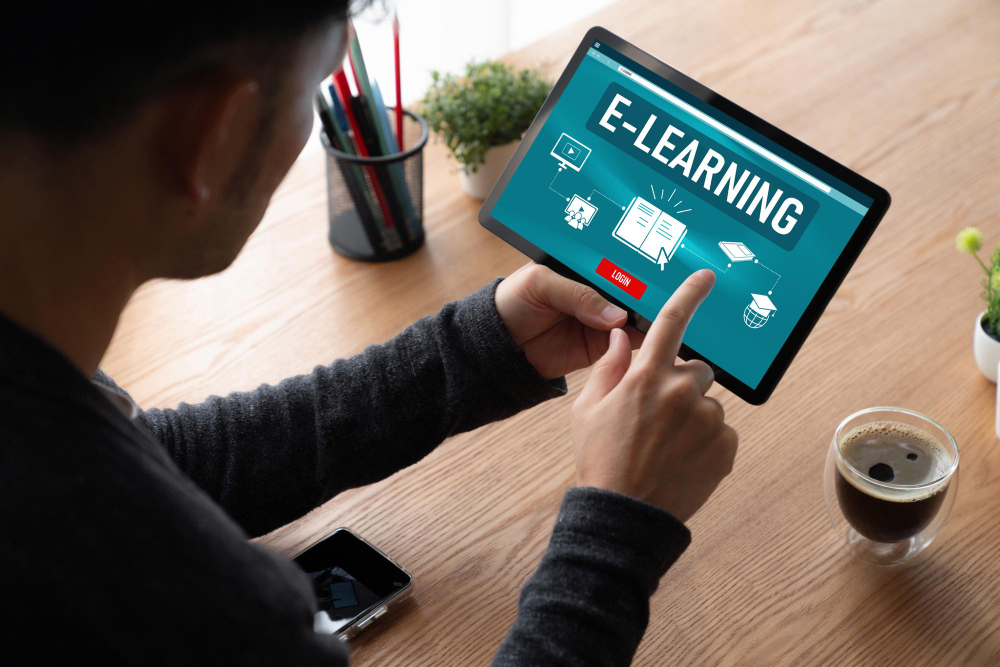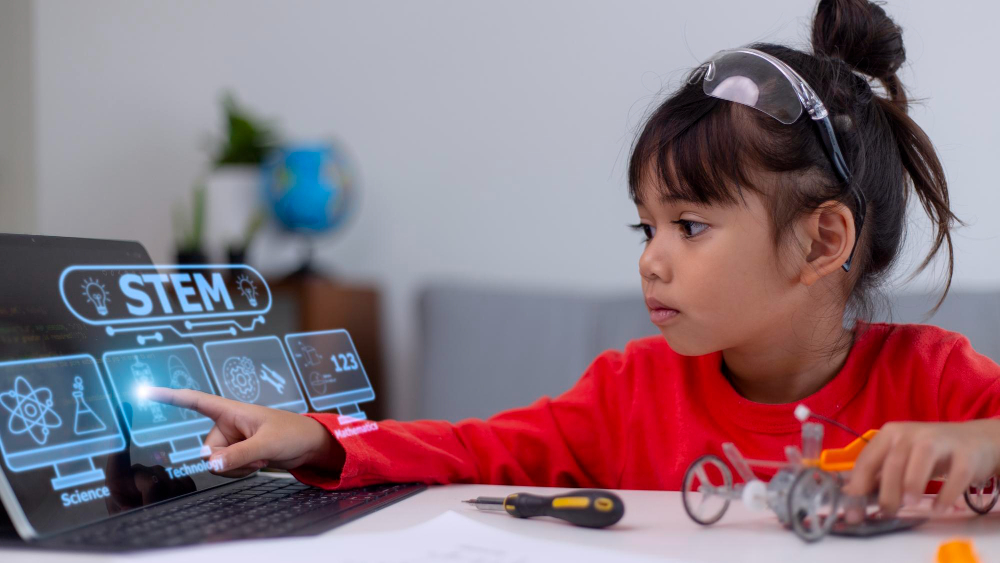
Thursday, 20Nov 2025
Adaptive Learning Technology Transforms Educational Personalisation: Creating Tailored Pathways for Every Student
Beyond One-Size-Fits-All Education Adaptive learning technology transforms…

Monday, 17Nov 2025
STEM eLearning innovations transform how students engage with scientific and mathematical concepts, creating unprecedented opportunities for deeper understanding and authentic inquiry. Traditional science and mathematics education—textbook explanations, static diagrams, and limited hands-on experiences—often fails to develop true conceptual mastery or inspire continued interest. Research demonstrates that well-designed STEM eLearning experiences increase concept retention, improve problem-solving capabilities, and boost student interest in STEM careers. These aren’t incremental improvements; they represent a fundamental shift in how students experience and internalize scientific and mathematical understanding.
Conventional science and mathematics instruction creates several critical challenges:
These limitations create STEM learning experiences that often feel disconnected from authentic scientific practice and fail to develop true conceptual understanding.
Abstract concepts become concrete through interactive visualization:
Digital labs expand experimentation possibilities:
These virtual environments democratize access to sophisticated experimentation while developing authentic scientific thinking skills.
Real scientific practice involves sophisticated data work:
Modern STEM requires programming and algorithmic thinking:
These computational approaches develop critical thinking skills while reflecting authentic modern scientific practice.
Mathematical concepts become accessible through visualization:
A middle school mathematics program implemented these visualization approaches and saw student mastery of algebraic concepts increase by 37% compared to traditional instruction.
Biological systems come alive through digital tools:
These dynamic representations transform abstract biological concepts into observable processes that students can understand.
Molecular interactions become visible through simulation:
Physical principles become experiential through interaction:
These interactive experiences help students develop intuition for physical principles that equations alone cannot provide.
Pedagogical Approaches for STEM eLearning
Authentic scientific thinking develops through guided inquiry:
This approach mirrors authentic scientific practice while developing critical thinking skills.
Real-world applications create meaningful context:
A high school implemented this approach and saw student application of scientific principles to novel situations improve by 47% on performance assessments.
Personalized progression accommodates different needs:
These adaptive approaches ensure that all students develop strong foundational understanding before advancing to more complex concepts.
Continuous feedback guides learning progression:
This continuous assessment creates a responsive learning environment that addresses difficulties before they become barriers to progress.
Digital divides exist among students:
These adaptations ensure that technology limitations don’t create educational barriers.
Many teachers lack confidence with certain STEM concepts:
Complete STEM education requires both approaches:
This balanced approach leverages the advantages of both digital and physical learning experiences.
Traditional testing often misaligns with modern STEM learning:
These assessment innovations ensure that testing reflects the deeper learning that STEM eLearning enables.
Effective STEM learning creates measurable understanding:
These indicators demonstrate that students have developed true conceptual understanding rather than superficial knowledge.
Authentic STEM education builds scientific thinking:
Effective STEM education creates lasting interest:
These longitudinal indicators reveal whether STEM education is creating lasting impact beyond immediate learning outcomes.
Modern STEM education builds broader capabilities:
These transferable skills represent some of the most valuable outcomes of effective STEM education.
As technology continues to evolve, several emerging approaches show particular promise:
AI is transforming STEM learning possibilities:
These capabilities create increasingly responsive learning experiences that adapt to each student’s developing understanding.
Immersive technologies create powerful learning opportunities:
Connected devices create authentic data experiences:
These connections to real-world data transform abstract concepts into concrete, relevant information with visible applications.
Digital platforms enable authentic scientific contribution:
These experiences transform students from science learners to actual scientific contributors, creating powerful engagement and purpose.
STEM eLearning innovations represent more than just modernized instruction—they offer a fundamental rethinking of how scientific and mathematical understanding develops. By providing dynamic visualization, unlimited experimentation, authentic problem-solving, and personalised progression, these approaches transform STEM from subjects to be endured into fascinating explorations that develop critical future skills.
The most effective educational programs recognize that STEM understanding requires both conceptual mastery and authentic practice. By implementing comprehensive eLearning approaches, these programs ensure that students develop both deep understanding and practical capabilities that prepare them for future STEM success.
Learning Owl specialises in developing comprehensive STEM eLearning solutions that transform abstract concepts into engaging, interactive experiences. Our team combines deep scientific expertise with cutting-edge instructional design to create learning environments that develop true conceptual mastery while inspiring continued STEM interest.

Thursday, 20Nov 2025
Beyond One-Size-Fits-All Education Adaptive learning technology transforms how educational content responds to individual learner needs, creating unprecedented opportunities for personalized mastery across diverse student populations. Traditional educational approaches—standardized content delivery,…
Read More line_end_arrow_notch
Monday, 17Nov 2025
Reimagining Scientific Discovery STEM eLearning innovations transform how students engage with scientific and mathematical concepts, creating unprecedented opportunities for deeper understanding and authentic inquiry. Traditional science and mathematics education—textbook explanations,…
Read More line_end_arrow_notch
Thursday, 13Nov 2025
Beyond Checkbox Compliance Compliance training strategies transform how insurance organizations approach regulatory requirements, converting what many view as burdensome obligations into operational advantages. The insurance industry faces one of the…
Read More line_end_arrow_notch